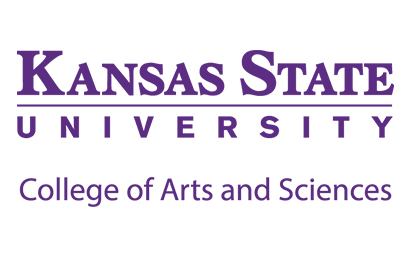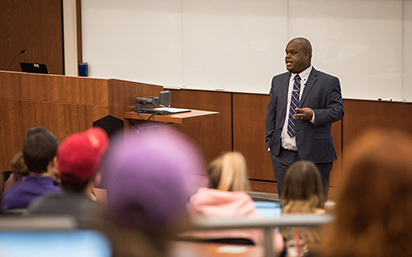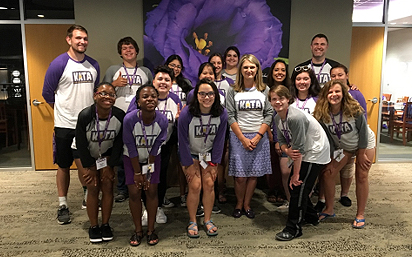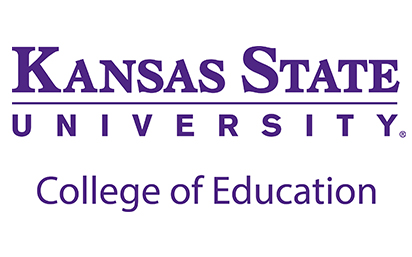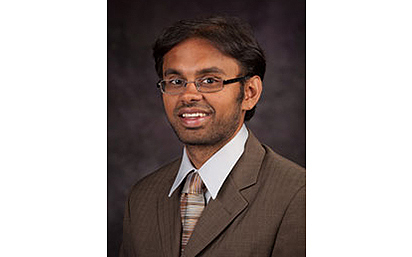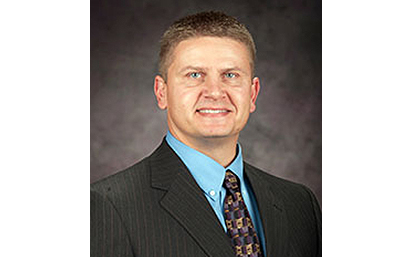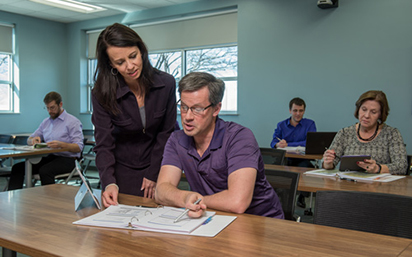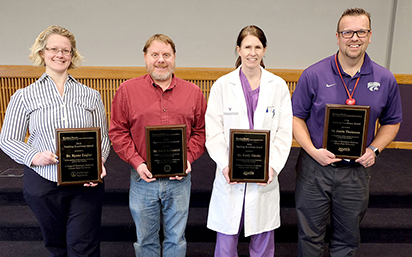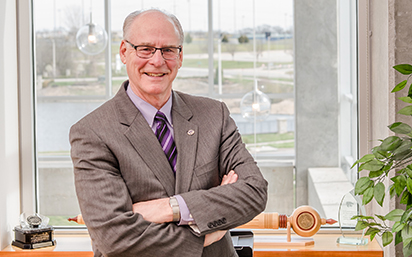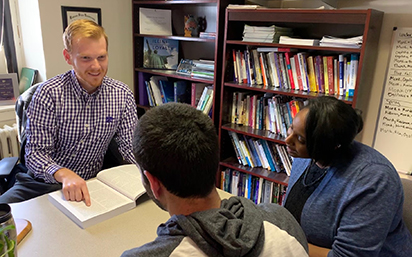
Meet our 2019 Distinguished Young Alumni (Part 1)
Kansas State University taught Kale Monk ’10, ’13 many things, but the most important
was how to be a “servant leader.”
As a freshman, he got involved with K-State CRU and traveled to Mississippi for a
Hurricane Katrina relief effort. That trip forever changed his view of the world.
“K-State was the first place I learned the importance of service,” he said. “That
trip really impacted my view of a world that was bigger than myself. It can be tempting
to think you are going to change the world with a service trip, but just one week
of service is often not enough to put a dent in the real need of a community, and
this trip was certainly a greater benefit to me than I was to the people I was serving.”
The trip started Kale on a path that eventually inspired him to change his major to
psychology and family studies and human services, and also seek a master’s degree
in couple and family therapy while at K-State. After earning a Ph.D. at the University
of Illinois, he is now an assistant professor and state Extension specialist at the
University of Missouri. As a professor, his work focuses on maintaining healthy intimate
relationships. His research has been featured in prominent national and international
media outlets, including The New York Post, USA Today, TIME, The Wall Street Journal and more.
In recognition of his work, Monk is being honored with the K-State Alumni Association
Student Alumni Board’s 2019 Distinguished Young Alumni Award. (Watch for an article about fellow 2019 DYA Award recipient Dr. Charley Cull ’12,
’14, ’16 in the March 2019 issue of @K-State.)
The DYA Award recognizes two K-State graduates who are younger than 35 and are using
the scholarship, leadership and service experience they acquired at K-State to excel
in their professions and contribute to their communities. The Alumni Association and
Student Alumni Board will honor Monk and Cull when they return to campus Feb. 25-27
to give keynote presentations and visit with student groups and university classes.
“I am humbled to receive this award from my beloved alma mater,” Monk said. “Kansas
State is such a unique place. K-State graduates are some of the most loyal and proud
alumni I have encountered in my time in academia.”
Learning to serve
Monk said that before K-State, he did not even know that the field of family science
existed.
“I am not sure I would be doing what I am doing today if it was not for Kansas State,”
he said.
In addition to fostering his passion for service, K-State is also where he learned
about the importance of human social relationships.
“Close relationships are considered key determinants of health and can exert a stronger
effect on well-being than other well-accepted risk factors like physical activity,
smoking, hypertension and environmental pollution,” he said. “In fact, those who are
lonely or socially isolated have an elevated risk of premature death. Yet many government
agencies and health care funders have been slow to recognize the importance of close
relationships compared to other public health priorities. K-State provided me with
great mentors who taught me a lot about helping relationships and still provide me
with key guidance in my research and career.”
While he was at K-State, he decided to minor in leadership studies and look for ways
to serve within the Staley School of Leadership Studies, starting as a student founder
and program coordinator for the K-State Volunteer Center of Manhattan (now HandsOn
K-State). He also was involved with the Mortar Board Senior Honor Society. Each organization
he was involved in taught him something valuable that he continues to carry with him.
Giving back with purple pride
Although Monk is no longer on campus, he is very proud of the fact he is a K-State
graduate, and he continues to share his purple pride wherever he goes.
“Although my peers at other universities are proud of their alma maters, they are
often stunned by my K-State pride,” he said. “When walking through cities for work
with these friends who graduated from other institutions, they constantly hear me
yelling ‘Go State’ to someone in a KSU sweatshirt or witness me starting conversations
with pedestrians who have Powercats on their hats. Sometimes it’s so excessive that
I even embarrass my non-KSU affiliated friends who just don’t understand. Once in
Chicago, for example, I spotted a K-State license plate and stopped a group of my
colleagues so I could leave a note on the parked car telling the owner about the Wildcats
in Illinois watch parties.”
His advice to current and future alumni is to keep promoting that K-State family spirit.
“It is critical to build your network of professional relationships,” he said. “We
don’t get anywhere alone. Reach out to other members of the K-State family — fellow
alumni, faculty and staff. Because of our pride in our alma mater and the sense of
service that is instilled in us, I believe you would be hard pressed to find a K-Stater
who is not willing to help a fellow alum in some capacity. With that being said, it
is also important that we ‘pay it forward.’ Good relationships are not without reciprocity.
As engaged alumni, we need to be willing to help others and our alma mater.”

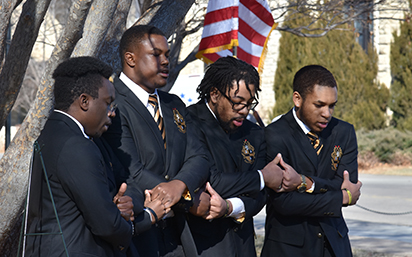
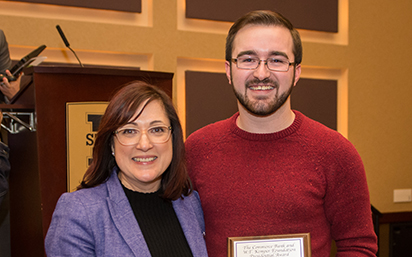
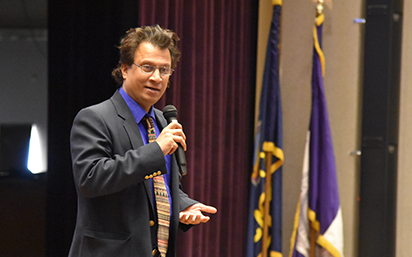
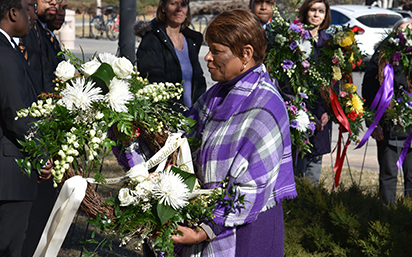
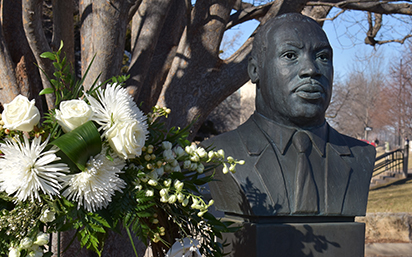
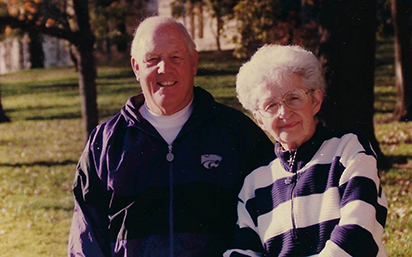
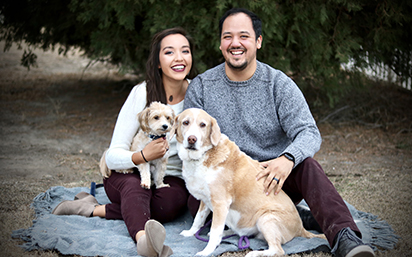 I met my sweetheart, Mac Benavides ’13, during my first year at K-State. Mac was the
founding member of the K-State Council of the League of United Latin American Citizens
(LULAC), which I joined shortly into my first semester on campus. In spring 2011,
K-State’s council hosted the Kansas LULAC State Convention, and Mac and I were paired
up to present a panel discussion.
I met my sweetheart, Mac Benavides ’13, during my first year at K-State. Mac was the
founding member of the K-State Council of the League of United Latin American Citizens
(LULAC), which I joined shortly into my first semester on campus. In spring 2011,
K-State’s council hosted the Kansas LULAC State Convention, and Mac and I were paired
up to present a panel discussion.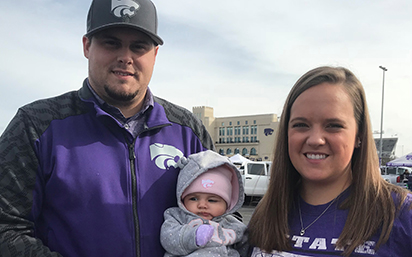 My husband, Bryant ’15, and I met our junior year at K-State. I was on the Classy
Cats dance team, and my husband was one of the Willie the Wildcats. We both ended
up going to the Kansas State Fair that year for a pep rally.
My husband, Bryant ’15, and I met our junior year at K-State. I was on the Classy
Cats dance team, and my husband was one of the Willie the Wildcats. We both ended
up going to the Kansas State Fair that year for a pep rally.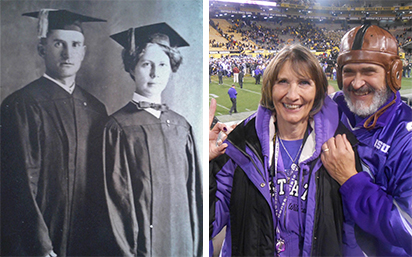 My “happily ever after” story began over a century ago with my grandparents...
My “happily ever after” story began over a century ago with my grandparents...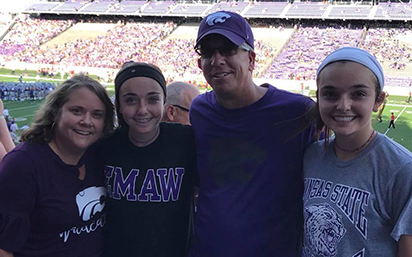 We were set up for a blind date to Lance’s ’95 fraternity barn party in the fall of
1992. We ended up having a fun time that night and would soon find out we had a lot
in common. We were together through the rest of our time at KSU.
We were set up for a blind date to Lance’s ’95 fraternity barn party in the fall of
1992. We ended up having a fun time that night and would soon find out we had a lot
in common. We were together through the rest of our time at KSU.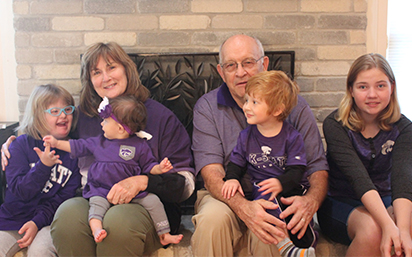 Teresa Thomas ’71, ’72 and I met on a blind date to the first football game at KSU
Stadium in 1968. The Wildcats, under Vince Gibson’s and Lynn Dickey’s ’71 leadership,
beat the Colorado State Rams, 21-0.
Teresa Thomas ’71, ’72 and I met on a blind date to the first football game at KSU
Stadium in 1968. The Wildcats, under Vince Gibson’s and Lynn Dickey’s ’71 leadership,
beat the Colorado State Rams, 21-0. 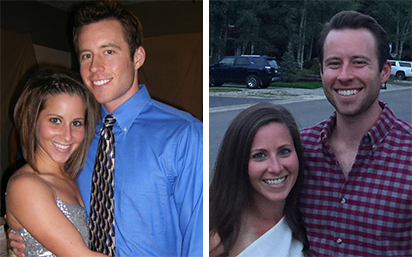 I met my spouse, Matt Hewitt ’09, while we were students at K-State during the 2008-09
school year. Matt was a senior and I was a junior and we met in Student Foundation.
The more we got involved in the organization, the more we ran into each other on campus
and during greek-life events.
I met my spouse, Matt Hewitt ’09, while we were students at K-State during the 2008-09
school year. Matt was a senior and I was a junior and we met in Student Foundation.
The more we got involved in the organization, the more we ran into each other on campus
and during greek-life events.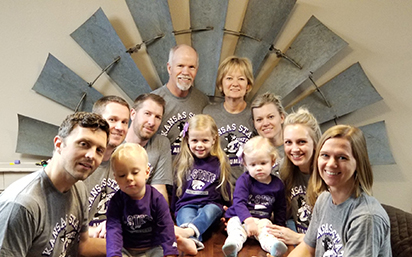 The Holste family shared their multi-generational collection of K-State love stories:
The Holste family shared their multi-generational collection of K-State love stories: 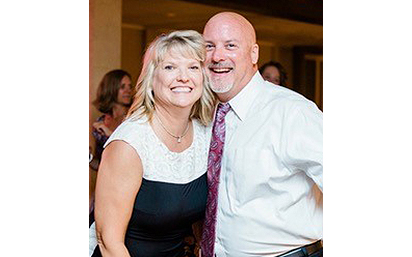 I came to K-State from Wichita, without any idea I would be meeting my K-State sweetheart
and future husband. I pledged the Alpha Xi Delta sorority, and one year later, from
Garden City, Kansas, my future sister-in-law pledged the same sorority.
I came to K-State from Wichita, without any idea I would be meeting my K-State sweetheart
and future husband. I pledged the Alpha Xi Delta sorority, and one year later, from
Garden City, Kansas, my future sister-in-law pledged the same sorority.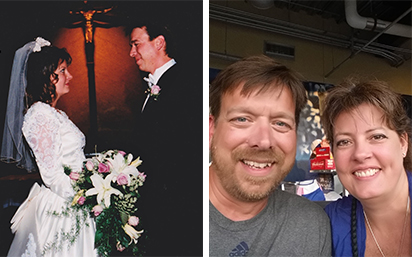 My husband Joe ’94 and I met in Moore Hall in 1989. He was roommates with Kory, a
good friend of mine. They lived on one wing and my new roommate and now great friend,
Brenda, and I lived on the other. We all became fast friends along with several others
on our floor.
My husband Joe ’94 and I met in Moore Hall in 1989. He was roommates with Kory, a
good friend of mine. They lived on one wing and my new roommate and now great friend,
Brenda, and I lived on the other. We all became fast friends along with several others
on our floor.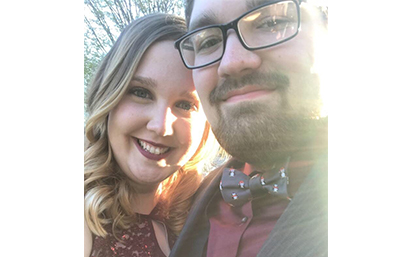 I found my boyfriend, Kalen Rickmon, here in MHK! We are both bakery science majors
and met at Bake Club. I was a sophomore and he was a freshman. I saw that a new kid
was doing the dishes so I figured I would go over and help him out. However, I saw
he was wearing a bright orange Broncos sweatshirt and I am a huge Chiefs fan.
I found my boyfriend, Kalen Rickmon, here in MHK! We are both bakery science majors
and met at Bake Club. I was a sophomore and he was a freshman. I saw that a new kid
was doing the dishes so I figured I would go over and help him out. However, I saw
he was wearing a bright orange Broncos sweatshirt and I am a huge Chiefs fan.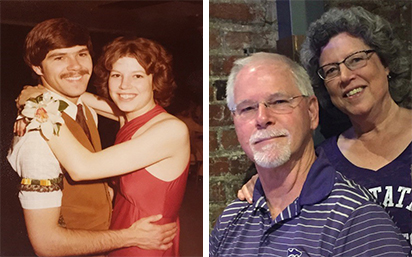 1975 — best year ever at K-State! That’s when I met the love of my life, Susan Sorensen
’77, in Aggieville, of all places. And, yes, she picked me up in Mr. K’s.
1975 — best year ever at K-State! That’s when I met the love of my life, Susan Sorensen
’77, in Aggieville, of all places. And, yes, she picked me up in Mr. K’s.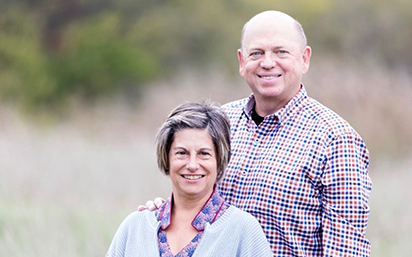 My husband, Gary ’82, and I met in April 1981 at K-State. It was a Saturday morning
at CiCo Park. My friends and I went to watch some of our friends from third floor
Haymaker play a very early morning softball game.
My husband, Gary ’82, and I met in April 1981 at K-State. It was a Saturday morning
at CiCo Park. My friends and I went to watch some of our friends from third floor
Haymaker play a very early morning softball game. 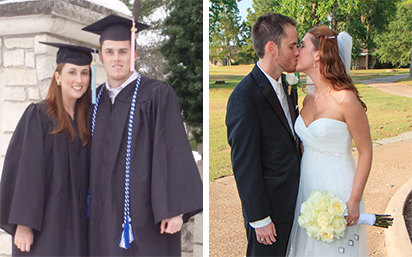 My wife, Michelle ’09, and I met in our education classes at K-State in fall 2008.
We started dating in 2009, and both graduated in December 2009. I found an opportunity
to propose to her at the Bluemont Bell in May 2011.
My wife, Michelle ’09, and I met in our education classes at K-State in fall 2008.
We started dating in 2009, and both graduated in December 2009. I found an opportunity
to propose to her at the Bluemont Bell in May 2011.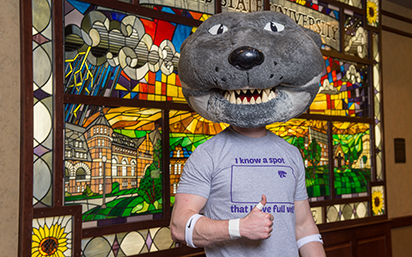
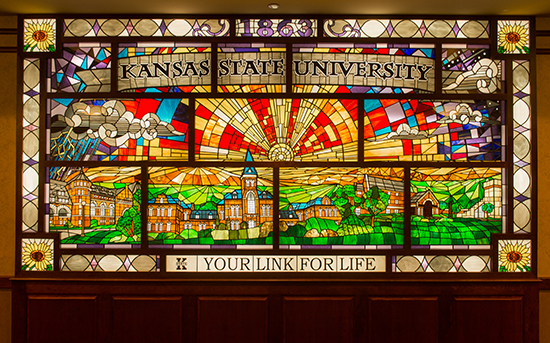

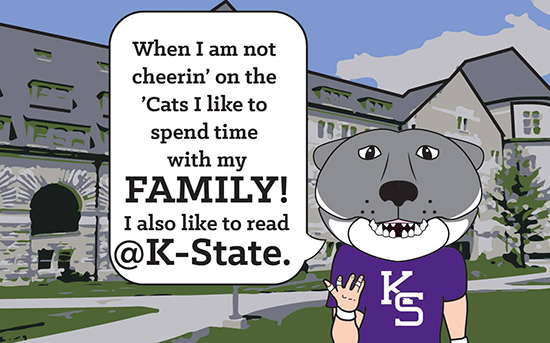
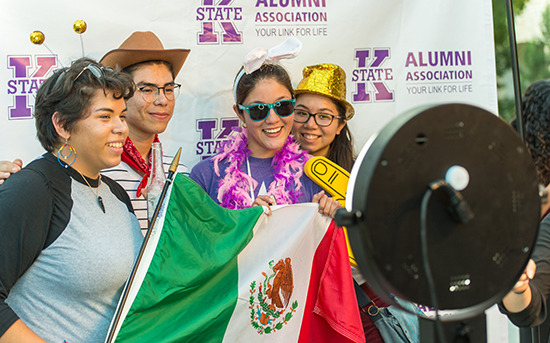
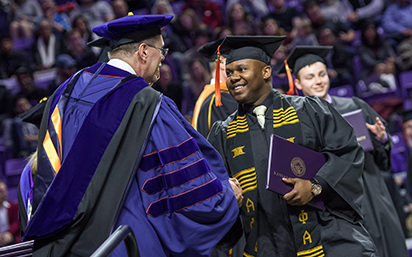
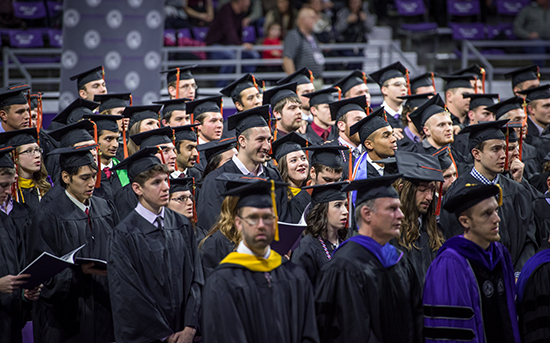 Save the date for the spring 2019 commencement ceremonies:
Save the date for the spring 2019 commencement ceremonies: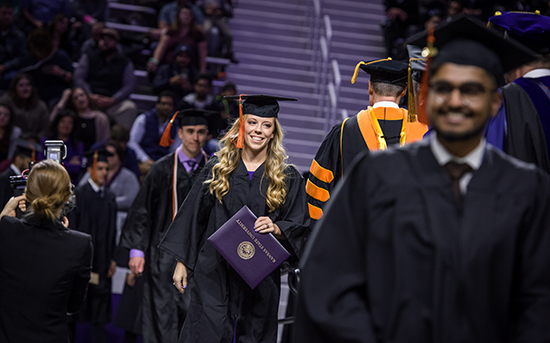 All students must apply for graduation online, through their student KSIS account.
This includes all majors, minors and/or secondary majors. The deadline to apply for
graduation is May 10. Since some schools/colleges may have program-specific graduation
deadlines, it’s a good idea to check with the Dean’s Office for official dates.
All students must apply for graduation online, through their student KSIS account.
This includes all majors, minors and/or secondary majors. The deadline to apply for
graduation is May 10. Since some schools/colleges may have program-specific graduation
deadlines, it’s a good idea to check with the Dean’s Office for official dates. 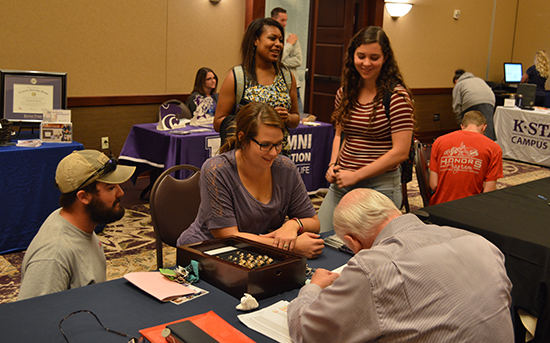 Not sure where to get a gown, class ring, graduation announcements, diploma frame
or other graduation must-haves? The K-State Alumni Association’s Grad Expo has it
all! Our spring 2019 event will be from 10 a.m. – 4 p.m. Feb. 25 and Feb. 26 at the
K-State Alumni Center. We’ll also have free professional headshots from 1-3 p.m. each
day, cookies, prizes and other giveaways.
Not sure where to get a gown, class ring, graduation announcements, diploma frame
or other graduation must-haves? The K-State Alumni Association’s Grad Expo has it
all! Our spring 2019 event will be from 10 a.m. – 4 p.m. Feb. 25 and Feb. 26 at the
K-State Alumni Center. We’ll also have free professional headshots from 1-3 p.m. each
day, cookies, prizes and other giveaways. 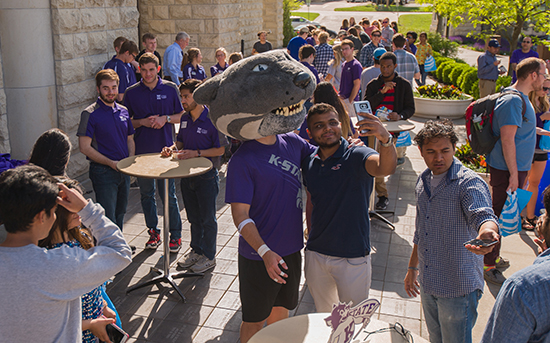 After all the hard work your student has completed to earn their degree, they deserve
to celebrate! All K-State students graduating in May or August are invited to attend
our
After all the hard work your student has completed to earn their degree, they deserve
to celebrate! All K-State students graduating in May or August are invited to attend
our 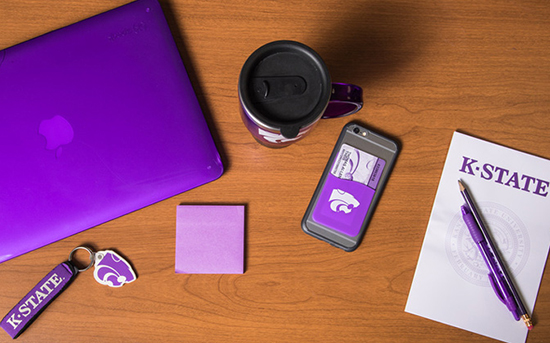 During the first 12 months after graduation, new alumni receive free career advising
from the K-State Career Center. Learn how you can
During the first 12 months after graduation, new alumni receive free career advising
from the K-State Career Center. Learn how you can 
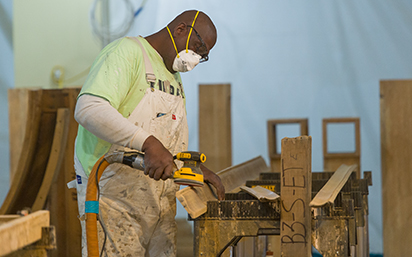 Before the fire, the library was already planning a renovation of the first floor,
but that project has now been expanded to the rest of the damaged areas in the building.
Before the fire, the library was already planning a renovation of the first floor,
but that project has now been expanded to the rest of the damaged areas in the building. Although the library’s projected reopening date is subject to change, based on construction
schedules and the insurance company, Goetsch said the goal is to open the first floor
in fall 2019, with the full library opening in late 2020. There will be a public open
house for those who would like to view the new library.
Although the library’s projected reopening date is subject to change, based on construction
schedules and the insurance company, Goetsch said the goal is to open the first floor
in fall 2019, with the full library opening in late 2020. There will be a public open
house for those who would like to view the new library.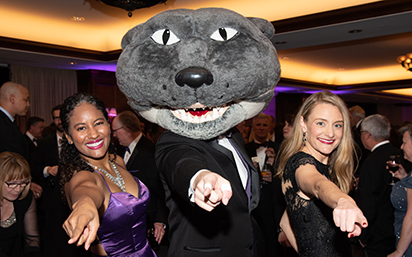
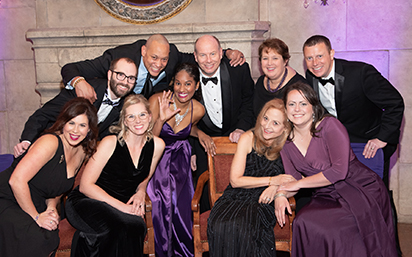
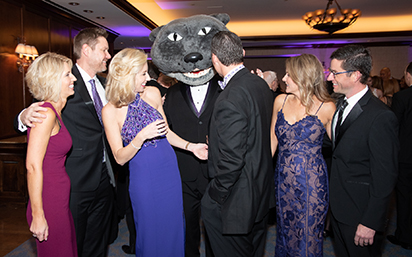
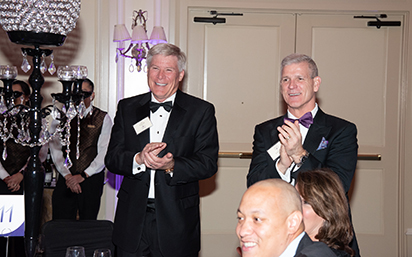
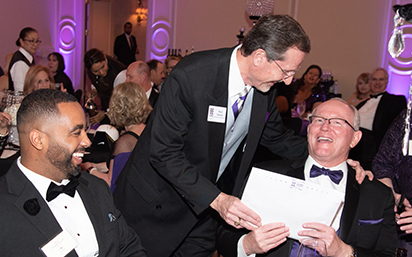
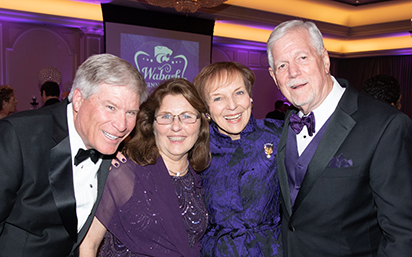
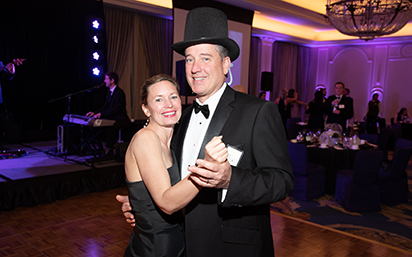

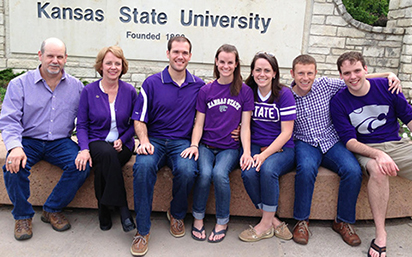 Parents often wonder if they are making a difference through the years of homework,
laundry, family shuttle services and teachable moments. For Dr. John ’82, ’84 and
Susan Bolton, their three children provided an answer when they accessed K-State Family
Scholarship match funds to name a scholarship in John and Susan’s honor, which will
benefit students in Kansas State University’s College of Veterinary Medicine.
Parents often wonder if they are making a difference through the years of homework,
laundry, family shuttle services and teachable moments. For Dr. John ’82, ’84 and
Susan Bolton, their three children provided an answer when they accessed K-State Family
Scholarship match funds to name a scholarship in John and Susan’s honor, which will
benefit students in Kansas State University’s College of Veterinary Medicine.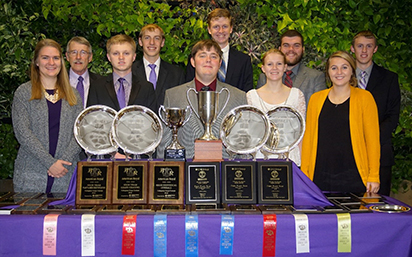
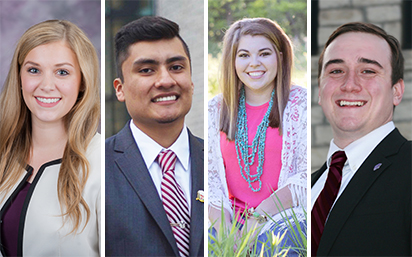
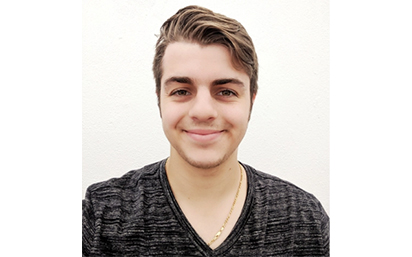
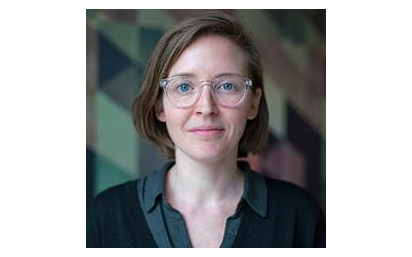

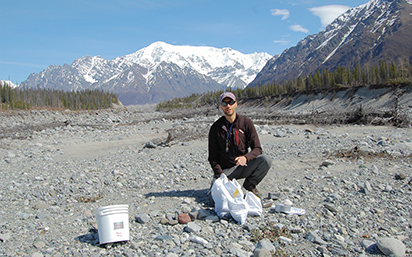 The Wrangell volcanic belt also is home to some of the largest — by height and volume
— volcanoes on Earth, including at least two that are historically active and considered
hazardous by the U.S. Geological Survey, Brueseke said. The volcanoes have not had
a major eruption of lava and ash this century, but have continuously released steam
and small ash plumes since their formation.
The Wrangell volcanic belt also is home to some of the largest — by height and volume
— volcanoes on Earth, including at least two that are historically active and considered
hazardous by the U.S. Geological Survey, Brueseke said. The volcanoes have not had
a major eruption of lava and ash this century, but have continuously released steam
and small ash plumes since their formation.